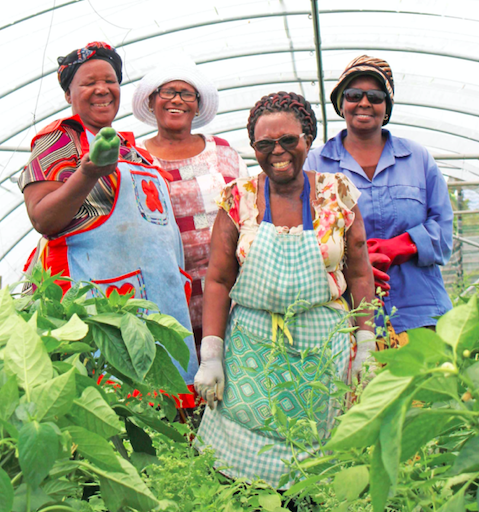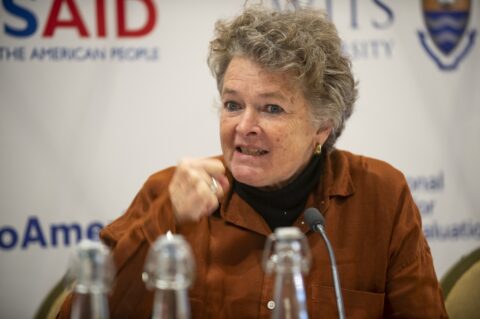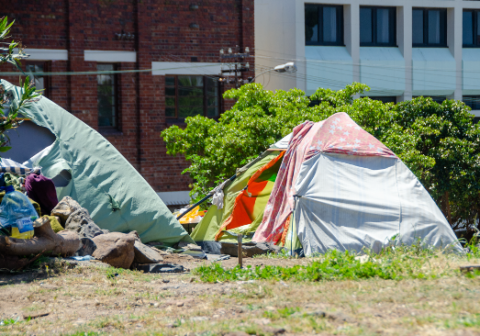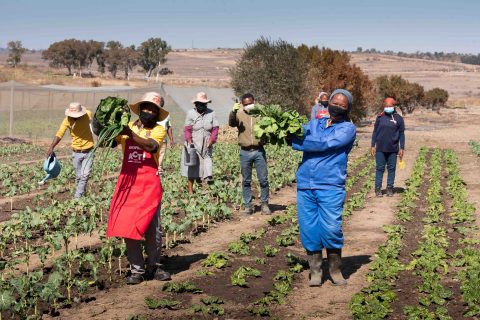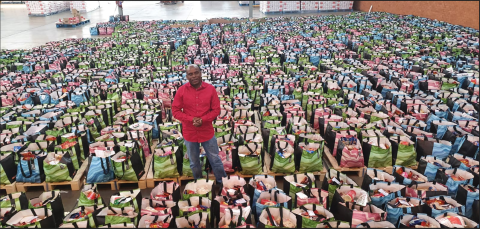Food Basket
Off The Street
People are deemed “food secure” when they have access to enough nutritious food to maintain an active and healthy lifestyle. But achieving true food security goes beyond simply handing out meals to those who can’t feed themselves. Intertwined with countless social complexities, if we want to address food security we need to start by economically empowering and uplifting our communities.
This is exactly what Jesse Laitinen and her team at Khulisa Social Solutions are trying to do.
Streetscapes is the Khulisa’s urban farming initiative, which aims to make better use of underutilised city spaces. Working exclusively with homeless people who have been on the streets for years and who have active addictions, substance abuse or mental health issues, Streetscapes hires these individuals to cultivate and look after the organic gardens it plants in urban areas.
These gardeners work full-time and are paid a monthly salary. It’s all about giving people agency and helping them get back on their feet, explains Laitinen. “These people don’t need another soup kitchen or a handout, they need work, they need housing and they need help repairing broken relationships with their families,” she explains. “This is not a short-term project or a programme that runs only for a few weeks. Our gardeners can stay with us for as long as they need to.” That said, Laitinen notes that around 70 per cent of the people who work with Streetscapes are able to move off the streets within six months. “We grow vegetables as a byproduct, but we’re actually in the business of growing people.”
Curating green fingers
Abalimi Bezekhaya was established in 1982. The NGO teaches people in townships how to grow their own organic vegetables and help them to turn these gardens into successful businesses, explains acting MD at Abalimi Bezekhaya, Grace Stead. This was the purpose of a project called Harvest of Hope. Launched by Abalimi in 2008, the project provided market access to farmers looking to sell surplus veggies.
But this model has evolved. “We actually closed Harvest of Hope in December 2019,” says Stead. “But this isn’t a bad thing. We found that the farmers are now doing everything themselves. We still offer basic market access support to smaller farms, but we no longer co-ordinate everything. It’s been encouraging to see how these farmers have started to show initiative and how they’re learning to stand on their own feet.”
Both Stead and Laitinen agree that none of the work they do would be possible without support from local businesses and communities and without external funding. For years, a number of Cape Town’s top hotels have bought fresh produce from Abalimi farmers, notes Stead. And the Oranjezicht City Farm has acted as a bit of a “big brother” to Streetscapes, Laitinen adds.
“For me, community gardens not only tackle issues around hunger, but they are also a great equaliser. These spaces bring everyone together around the same table and showcase that communities are willing to show support for the homeless people living in their areas,” Laitinen says. “When residents visit our gardens, they treat the gardeners like experts and that represents a change in mindset and an incredible shift in social power dynamics.”
